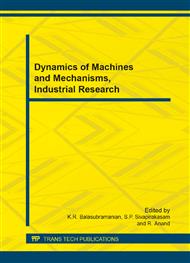p.2546
p.2552
p.2557
p.2561
p.2569
p.2577
p.2583
p.2588
p.2596
A Comprehensive Study to Evaluate the Critical Success Factors Affecting Lean Concept in Indian Manufacturing Industries
Abstract:
Change is the word that best characterizes the nature of modern Business scenario and determines the challenges that manager’s face.Staying competitive requires looking for new ways of reducing costs and increase the quality of the company’s products. Lean thinking is considered to be one potential approach for improving organizational performance.When the flexibility seems to be an important issue in today’s highly competitive environment Lean integrated as a complete system in the organization can ensure company’s adaptation. Developed as a production system eliminating wastes in the Toyota’s plants in the 1960’s, Lean is evolving into a management approach that improves all the processes at each level of an organization. This study aims to develop a comprehensive theoretical framework that suggest a detailed perspective of the Lean manufacturing to the managers whoconsider implementing it as a possible direction towards achieving sustainable performance for their organizations. The factors which affect the implementation of lean in manufacturing sector are identified by undertaking extensive literature review and consulting the experts from academia and industry. The factors identified are modeled to find the respective loading on Lean variable using Structural Equation Modeling.
Info:
Periodical:
Pages:
2569-2576
Citation:
Online since:
July 2014
Authors:
Price:
Сopyright:
© 2014 Trans Tech Publications Ltd. All Rights Reserved
Share:
Citation:


